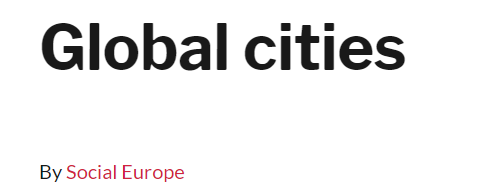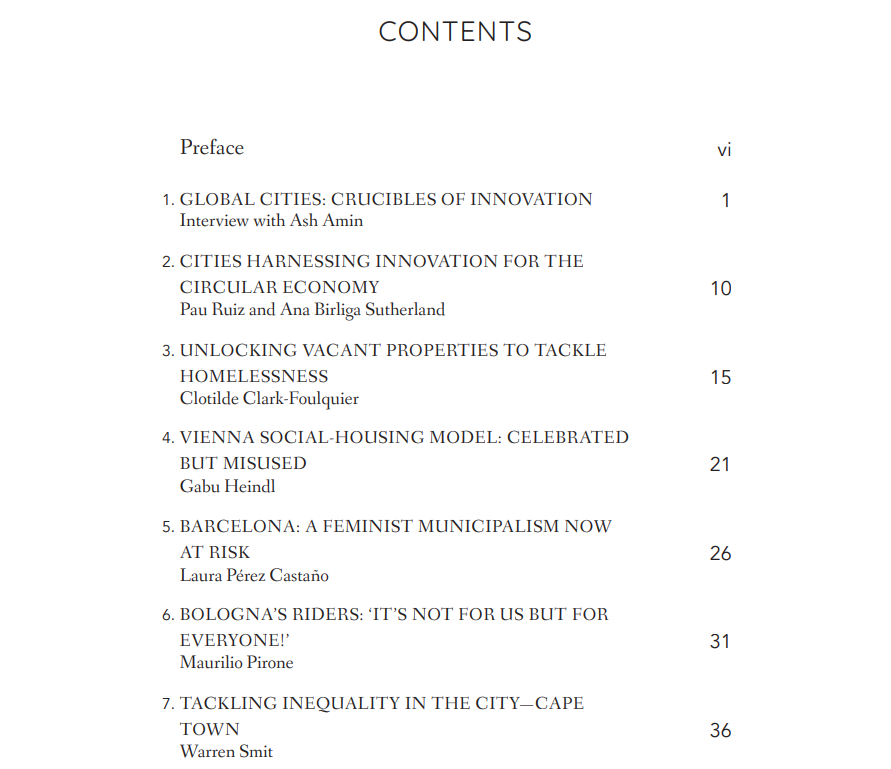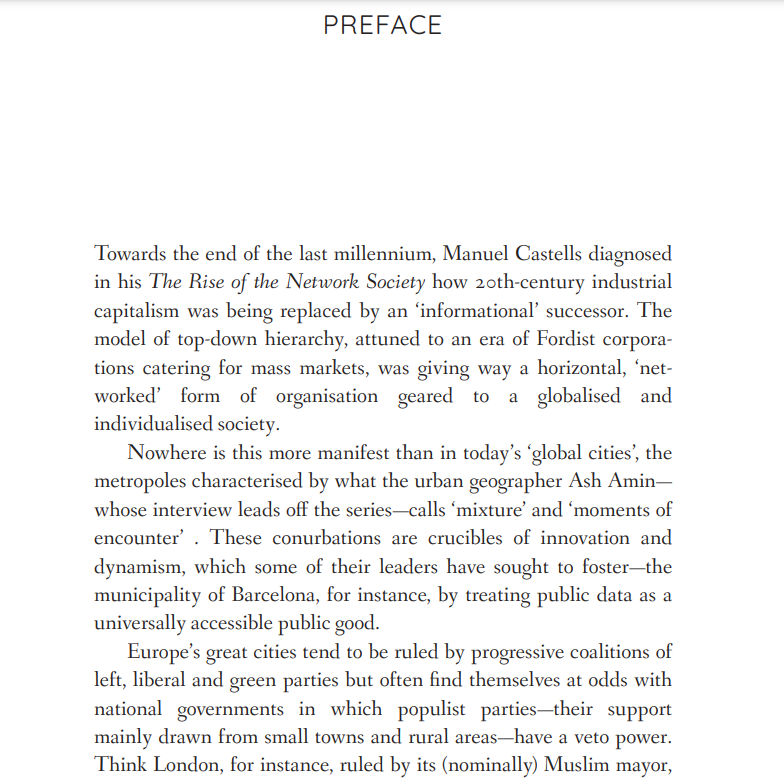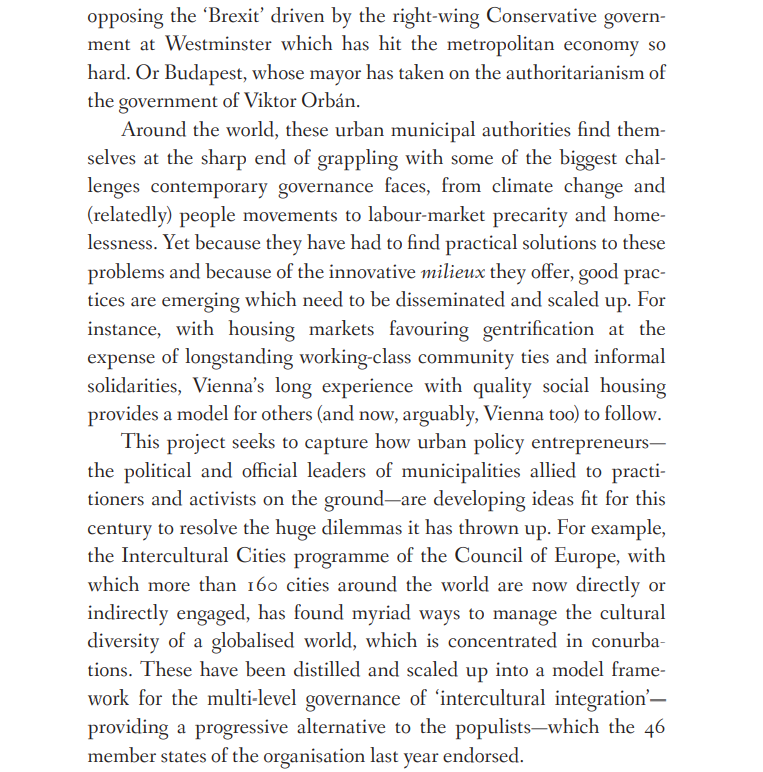Welcome to DU!
The truly grassroots left-of-center political community where regular people, not algorithms, drive the discussions and set the standards.
Join the community:
Create a free account
Support DU (and get rid of ads!):
Become a Star Member
Latest Breaking News
General Discussion
The DU Lounge
All Forums
Issue Forums
Culture Forums
Alliance Forums
Region Forums
Support Forums
Help & Search
New dossier: our series on global cities (free download)


https://www.socialeurope.eu/book/global-cities
Dossier description
Towards the end of the last millennium, Manuel Castells diagnosed in his The Rise of the Network Society how 20th-century industrial capitalism was being replaced by an ‘informational’ successor. The model of top-down hierarchy, attuned to an era of Fordist corporations catering for mass markets, was giving way a horizontal, ‘networked’ form of organisation geared to a globalised and individualised society. Nowhere is this more manifest than in today’s ‘global cities’, the metropoles characterised by what the urban geographer Ash Amin—whose interview leads off the series—calls ‘mixture’ and ‘moments of encounter’ . These conurbations are crucibles of innovation and dynamism, which some of their leaders have sought to foster—the municipality of Barcelona, for instance, by treating public data as a universally accessible public good.
Europe’s great cities tend to be ruled by progressive coalitions of left, liberal and green parties but often find themselves at odds with national governments in which populist parties—their support mainly drawn from small towns and rural areas—have a veto power. Think London, for instance, ruled by its (nominally) Muslim mayor, opposing the ‘Brexit’ driven by the right-wing Conservative government at Westminster which has hit the metropolitan economy so hard. Or Budapest, whose mayor has taken on the authoritarianism of the government of Viktor Orbán. Around the world, these urban municipal authorities find themselves at the sharp end of grappling with some of the biggest challenges contemporary governance faces, from climate change and (relatedly) people movements to labour-market precarity and homelessness.
Yet because they have had to find practical solutions to these problems and because of the innovative milieux they offer, good practices are emerging which need to be disseminated and scaled up. For instance, with housing markets favouring gentrification at the expense of longstanding working-class community ties and informal solidarities, Vienna’s long experience with quality social housing provides a model for others (and now, arguably, Vienna too) to follow. This project seeks to capture how urban policy entrepreneurs—the political and official leaders of municipalities allied to practitioners and activists on the ground—are developing ideas fit for this century to resolve the huge dilemmas it has thrown up. For example, the Intercultural Cities programme of the Council of Europe, with which more than 160 cities around the world are now directly or indirectly engaged, has found myriad ways to manage the cultural diversity of a globalised world, which is concentrated in conurbations.
These have been distilled and scaled up into a model framework for the multi-level governance of ‘intercultural integration’—providing a progressive alternative to the populists—which the 46 member states of the organisation last year endorsed. Indeed, because dynamic cities have sought to break out of the ‘national container’ of conventional politics—unsustainable in a globalised era of global challenges—they have networked among themselves to share good practices. Another case in point is the C40 network of (now 96) cities committed to drastic reduction of their greenhouse-gas emissions by 2030. Progressives were long used to imagining, like the British Fabians, ‘professional’ solutions to public-policy problems which could be implemented by a benign state in a paternalistic fashion. That is not the way for a networked age of non-deferential citizens. This project turns the prism bottom-up—starting from the street rather than the state.
Free Download: https://www.socialeurope.eu/wp-content/uploads/2023/10/Global-cities-Print.pdf






InfoView thread info, including edit history
TrashPut this thread in your Trash Can (My DU » Trash Can)
BookmarkAdd this thread to your Bookmarks (My DU » Bookmarks)
0 replies, 489 views
ShareGet links to this post and/or share on social media
AlertAlert this post for a rule violation
PowersThere are no powers you can use on this post
EditCannot edit other people's posts
ReplyReply to this post
EditCannot edit other people's posts
Rec (2)
ReplyReply to this post